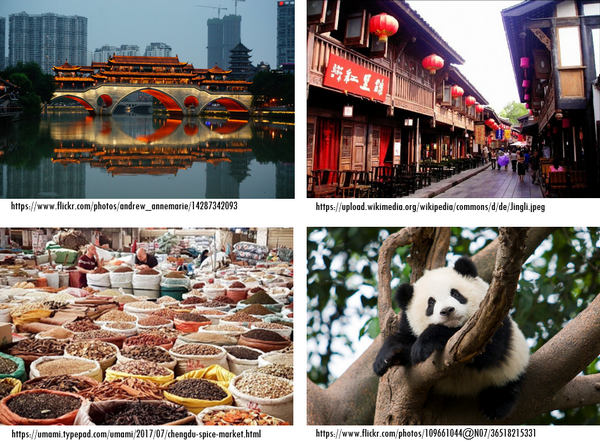
|
|
|
Local Informations > ChengduChengdu is located in central Sichuan. The surrounding Chengdu Plain is known as the "Land of Abundance". Its prehistoric settlers included the Sanxingdui Culture. The site of Dujiangyan, an ancient irrigation system, is designated as a World Heritage Site. The Jin River flows through the city. Founded by the state of Shu prior to its incorporation into China, Chengdu is unique as a major Chinese settlement that has maintained its name mostly unchanged throughout the imperial, republican, and communist eras. Chengdu's importance as a link between Eastern and Western China expanded, with railways built to Chongqing in 1952, and Kunming and Tibet afterwards. In the 1960s, Chengdu became an important centre of China's national defense industry. Chengdu's culture largely reflects that of its province, Sichuan; in 2011, it was recognized by UNESCO as a city of gastronomy. It is associated with the giant panda, a Chinese national symbol, which inhabits the area of Sichuan; the city is home to the Chengdu Research Base of Giant Panda Breeding. Today, Chengdu is one of the most important economic, financial, commercial, cultural, transportation, and communication centers in Western China. Its economy is diverse, characterized by the machinery, automobile, medicine, food, and information technology industries. Chengdu Shuangliu International Airport, a hub of Air China and Sichuan Airlines, is one of the 30 busiest airports in the world, and the Chengdu railway station is one of the six biggest in China. Chengdu also hosts many international companies and more than 12 consulates; more than 270 Fortune 500 companies have established branches in Chengdu. Chengdu is the seat of the Western Theatre Command region of the People's Liberation Army. Chengdu will host the Summer Universiade in 2021, an international multi-sport event. It is considered one of the most livable cities in China.
|


